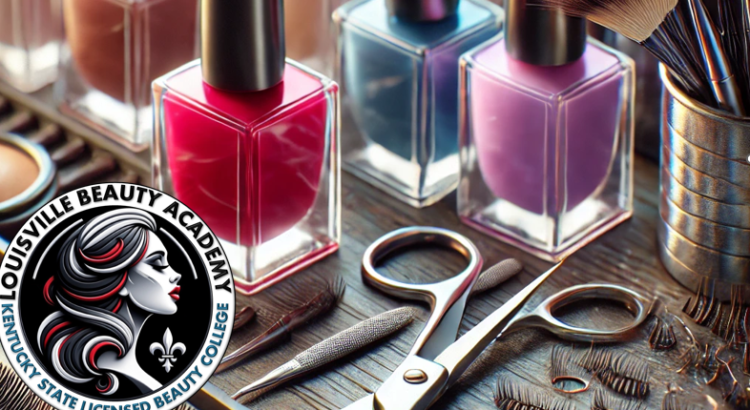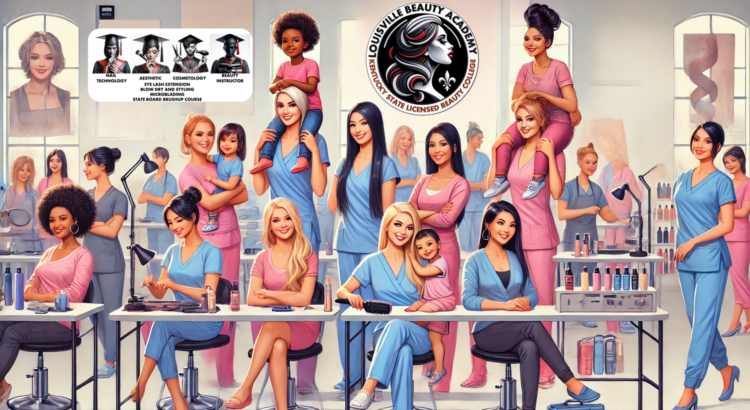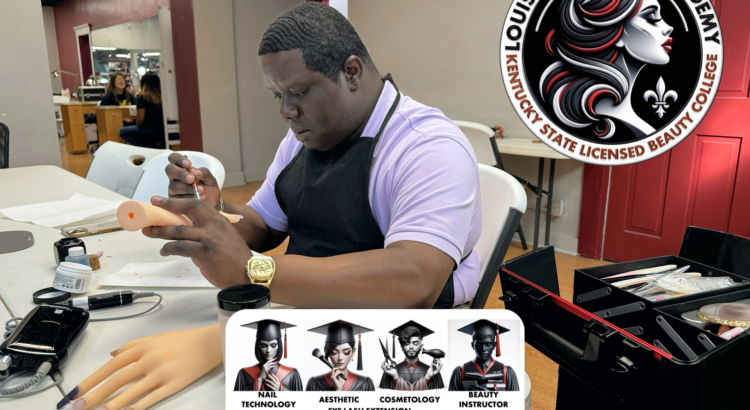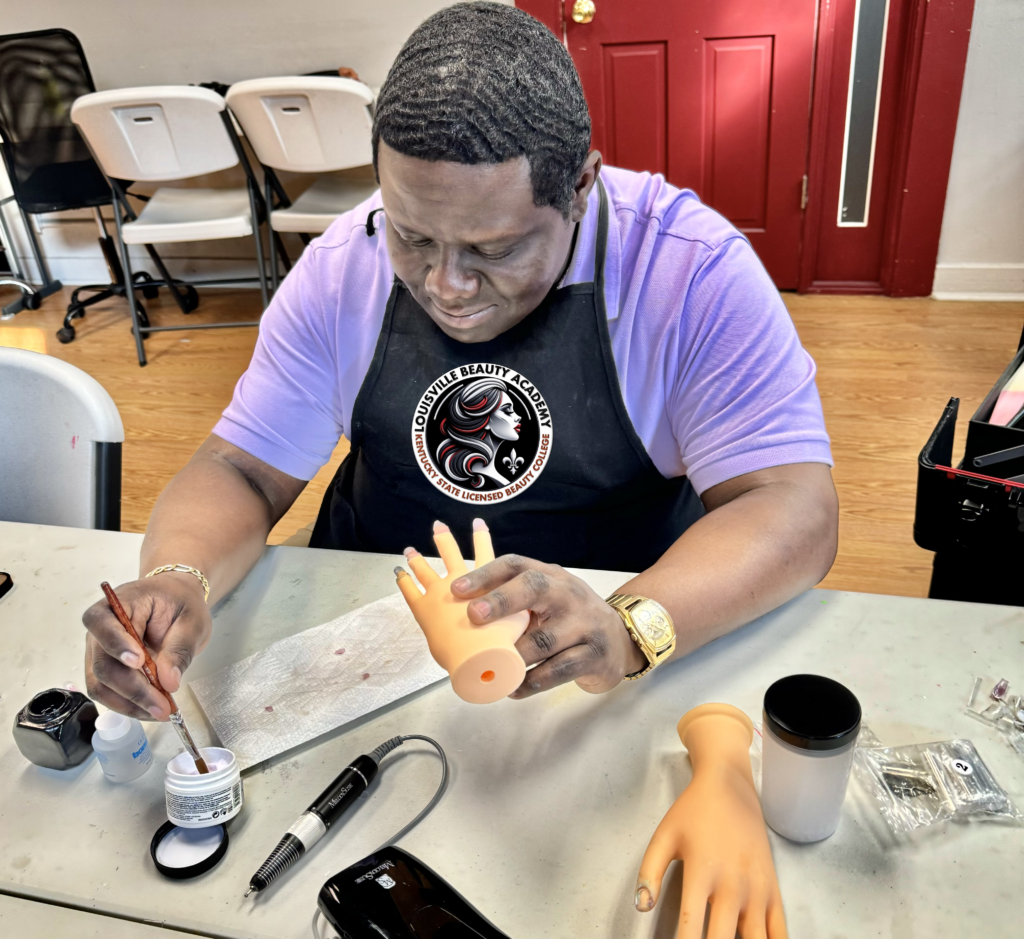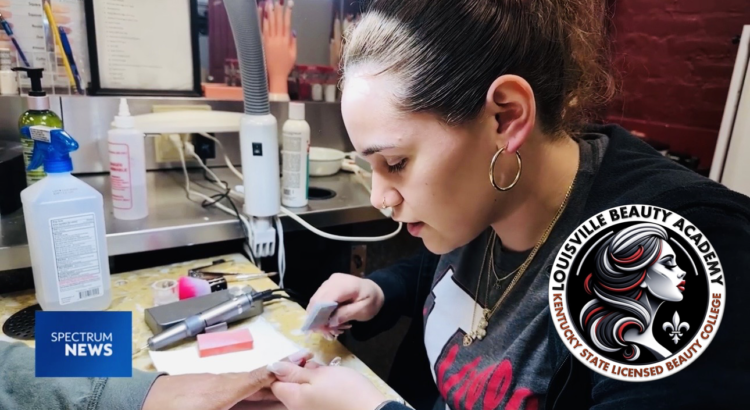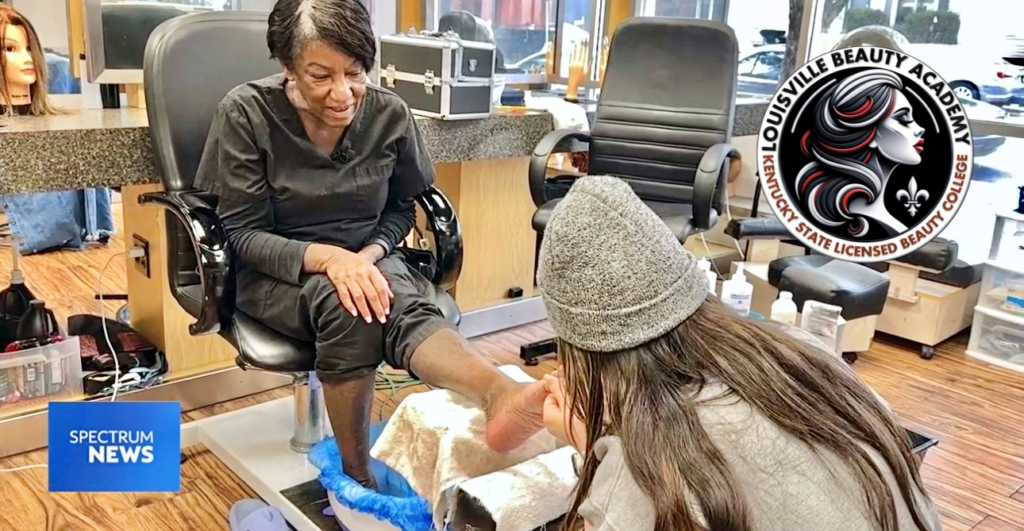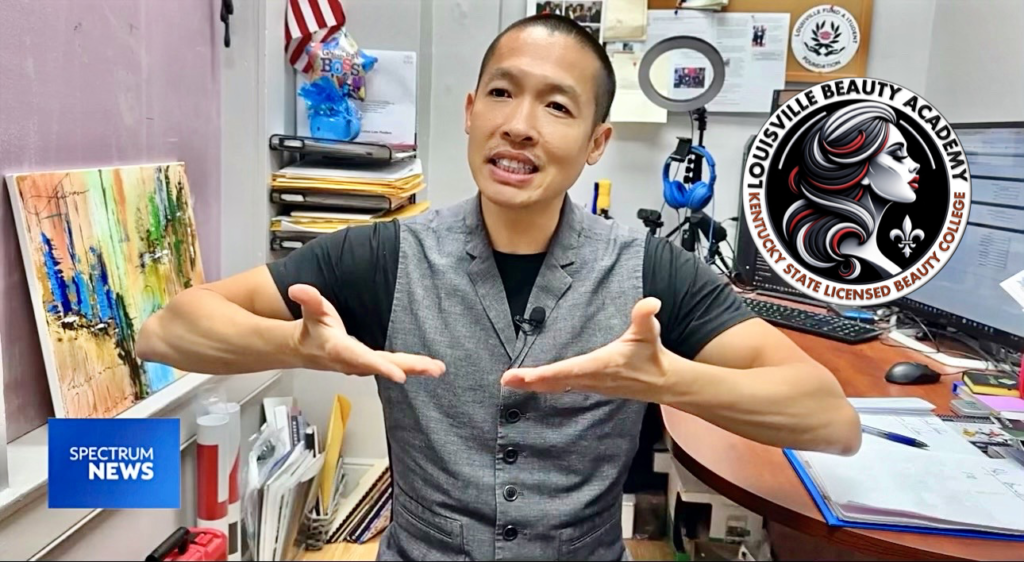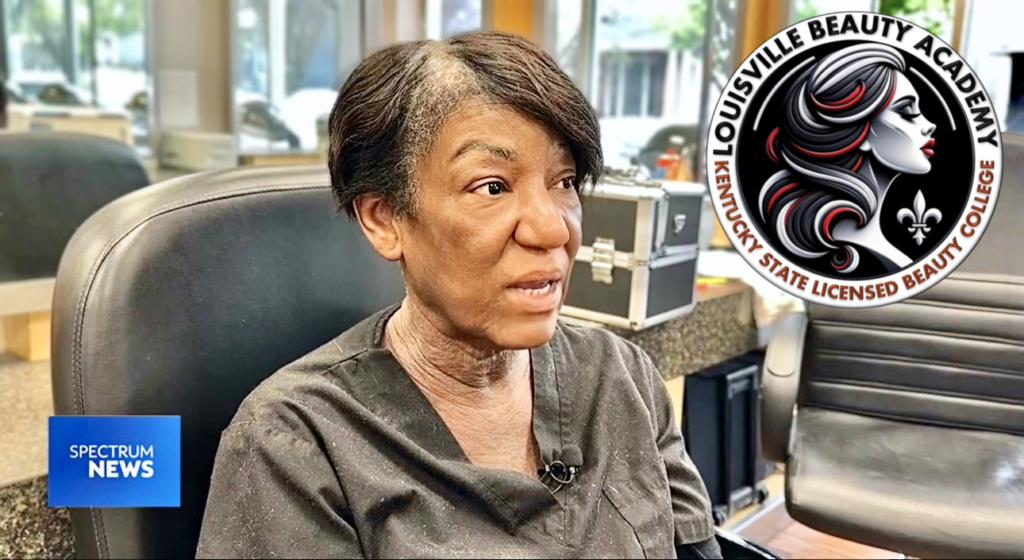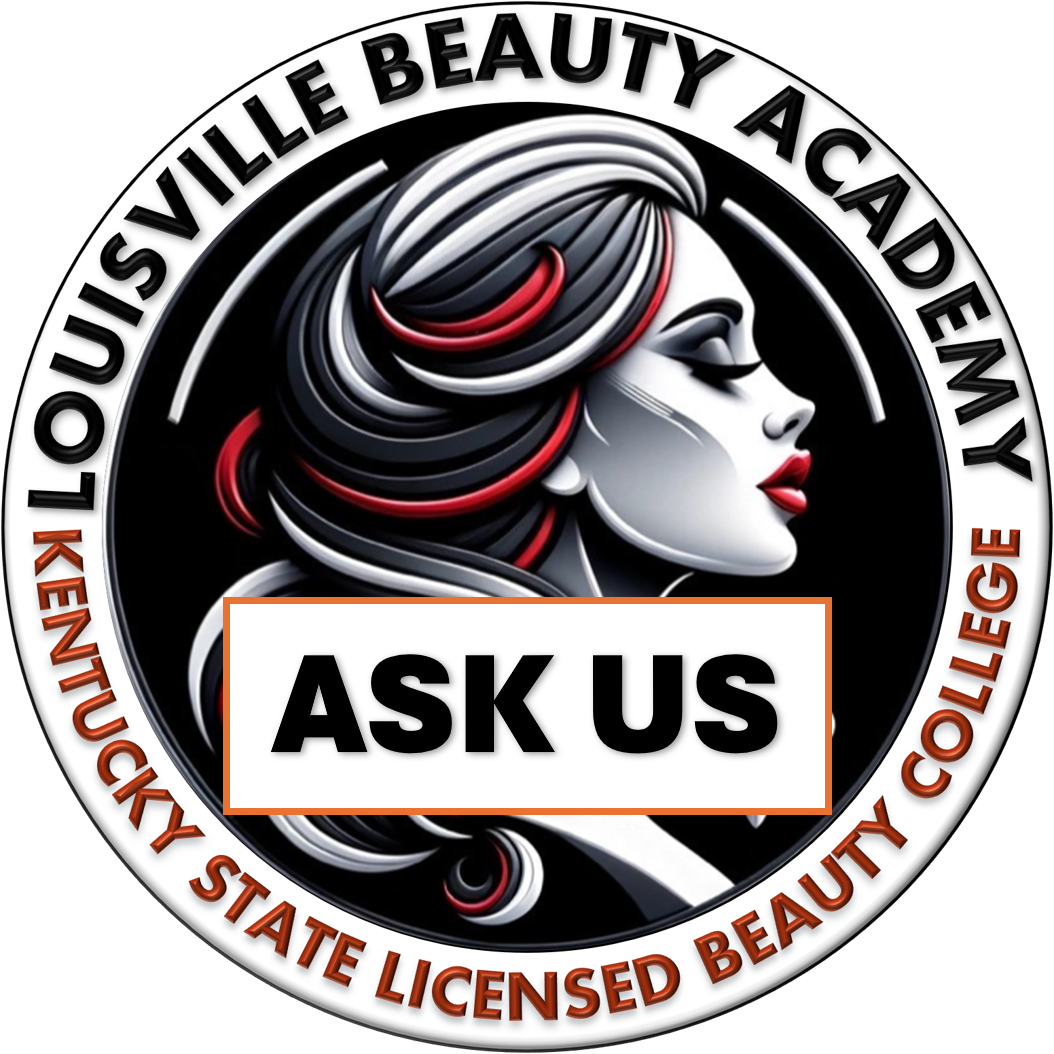The beauty industry is more than just skin-deep; it is an essential, recession-resistant sector that offers a unique blend of creativity, practicality, and economic stability. With low capital investment, accessible college fees, and endless opportunities for personal and professional growth, the beauty field is a gateway to secure and thriving careers. Louisville Beauty Academy is leading the charge, offering one of the most affordable and flexible beauty education experiences in Kentucky.
Beauty: A Basic Human Need and a Thriving Industry
From nail technicians and estheticians to cosmetologists and salon owners, the beauty industry touches lives in profound and personal ways. Beauty services are no longer limited to luxury—they are integrated into healthcare, wellness, and essential human services.
- Nursing and Physician Assistants Exploring Beauty: Healthcare professionals are turning to beauty licensing as an additional skill set, recognizing its importance in patient care and overall wellness.
- Nail Technicians Serving Specialized Needs: Nail care is being recommended for the elderly and disabled, emphasizing beauty’s role in health and self-care.
- Esthetics in Medical Practices: Doctors’ offices increasingly incorporate estheticians, integrating beauty services into medical-grade skincare and health treatments.
- Beauty Products as Health Products: As consumers shift away from chemical-laden products, beauty products are evolving into health products, further blurring the lines between beauty and wellness.
Louisville Beauty Academy: Affordable, Flexible, and Student-Centered
At Louisville Beauty Academy, we recognize that beauty licensing is challenging enough without unnecessary hurdles. That’s why we focus on providing a family-oriented, supportive environment where students can learn and grow at their own pace.
What Sets Louisville Beauty Academy Apart:
- Affordability: As one of the most cost-effective beauty colleges in Kentucky, we believe that investing in yourself shouldn’t break the bank.
- Flexibility: Whether you’re a full-time worker, a parent, or exploring a new career path, our accelerated programs adapt to your schedule. We pace with you; we don’t force you.
- Licensing First: We don’t oversell dreams of immediate professional success. Instead, we focus on helping you achieve the critical first step—obtaining your beauty license.
- Practical Training: While licensing is our primary focus, we offer ongoing opportunities for graduates to return, improve their skills, and receive hands-on guidance for launching their own salons or businesses.
- Community Engagement: Graduates can become tutors, speakers, and mentors, fostering a culture of collaboration and lifelong learning.
Why Choose Beauty as Your Career?
- Recession-Proof: The beauty industry thrives in any economy, providing steady income and job security.
- Low Barrier to Entry: Unlike other professions requiring years of education and massive student loans, beauty licensing is affordable and achievable in a relatively short time.
- Endless Opportunities: Whether you aspire to work in a salon, launch your own business, or integrate beauty with healthcare, the possibilities are limitless.
- Personal Fulfillment: Beauty is about more than appearances—it’s about confidence, health, and self-care, making it a deeply rewarding career path.
Secure Your Future with Louisville Beauty Academy
Louisville Beauty Academy isn’t just a school; it’s a launchpad for success. We go beyond the basics to help you not only achieve licensing but also develop the skills and confidence to thrive in the real world. From licensing to salon management, we are here to guide you every step of the way.
- Collaborate with Industry Experts: Learn directly from our founder and experienced instructors about launching and managing a successful beauty business.
- Gain Hands-On Experience: Participate in real-world applications of beauty services and receive mentorship from our supportive community.
- Shape the Future of Beauty: Join a booming industry where innovation and care intersect, paving the way for both personal growth and societal impact.
Take the First Step Today
The beauty industry is more than a career; it’s a calling. By investing in a beauty license through Louisville Beauty Academy, you are not only securing a future of stability and creativity but also joining a community dedicated to excellence and service.
Your journey starts here. Embrace the opportunity to transform lives—your own and others’—through the power of beauty. Louisville Beauty Academy: Affordable, Flexible, and Focused on You.
Enroll Now and Begin Your Journey to a Beautiful Future!
Take the first step toward a rewarding and recession-proof career in the booming beauty industry. Join Louisville Beauty Academy today, where affordability, flexibility, and a supportive environment are at the heart of your education.
📱 Text us at: 502-625-5531
📧 Email us at: study@LouisvilleBeautyAcademy.net
Our Enrollment Department is ready to assist you in achieving your dreams!
Disclaimer
Louisville Beauty Academy focuses on preparing students to meet the licensing requirements outlined by the Kentucky State Board of Cosmetology. While we provide practical skills and training, individual career success depends on continued professional development, personal effort, and external market factors. Our programs are designed to support you at every stage of your beauty career journey.

